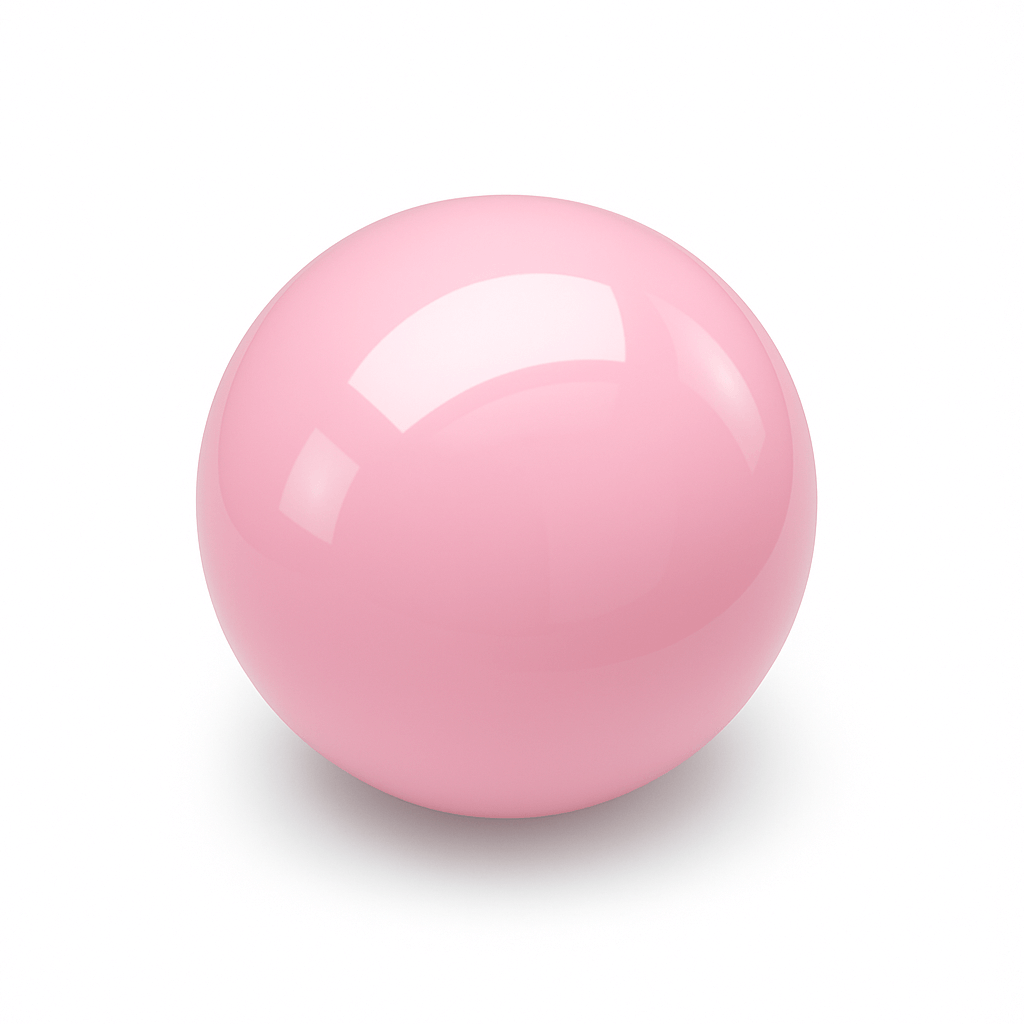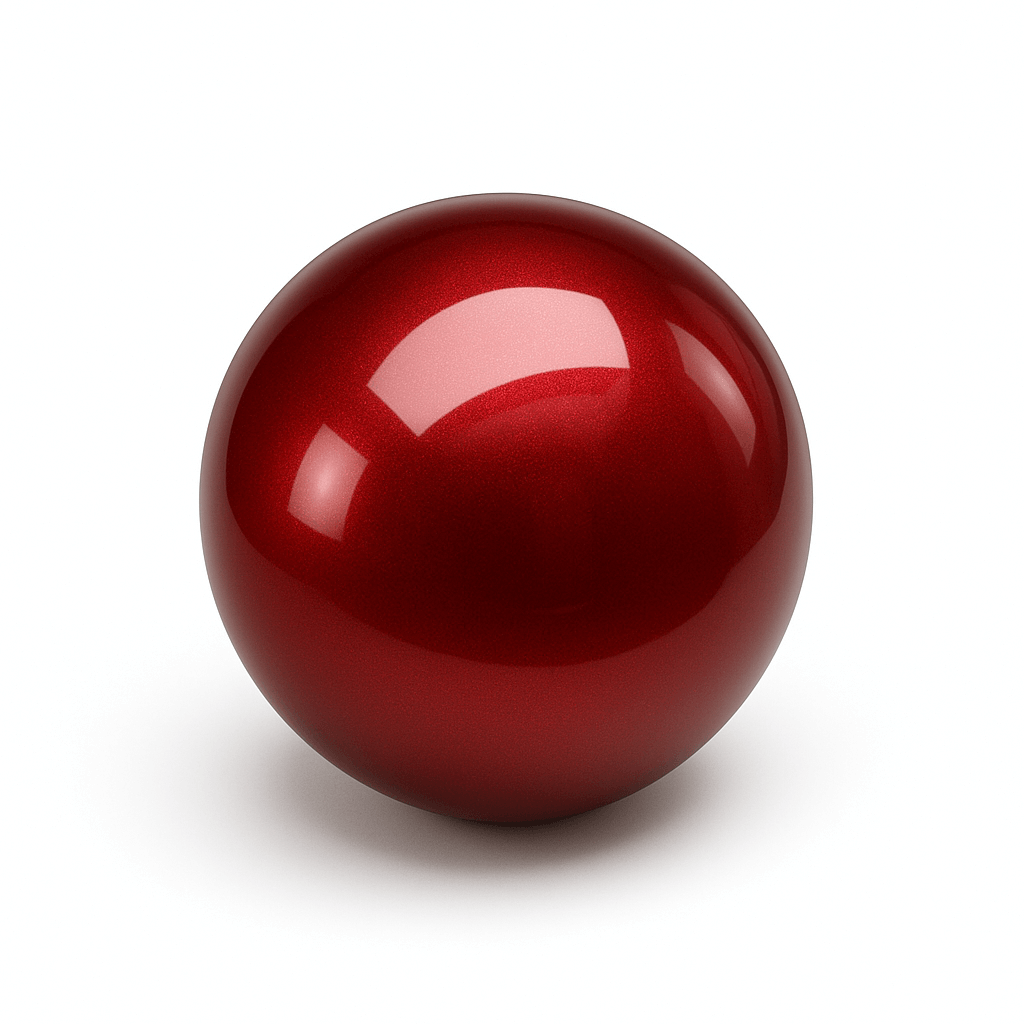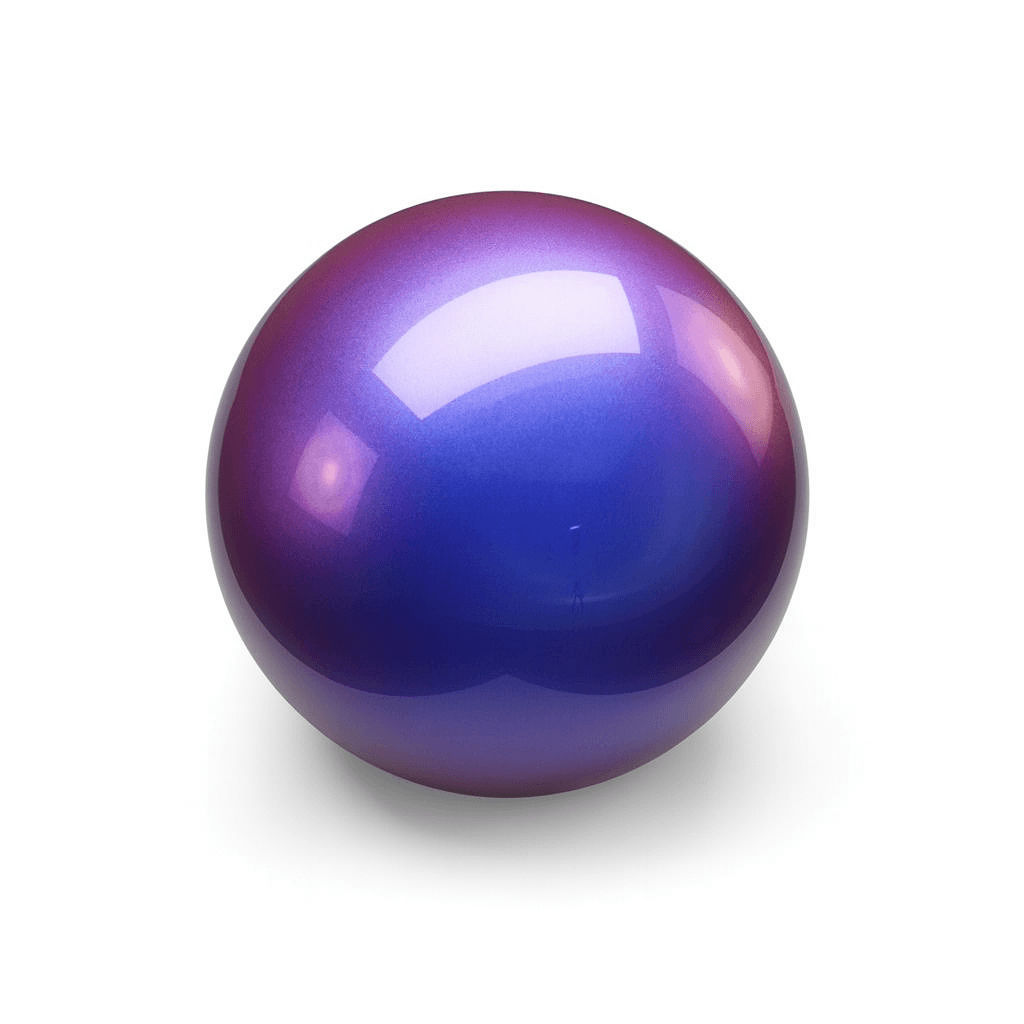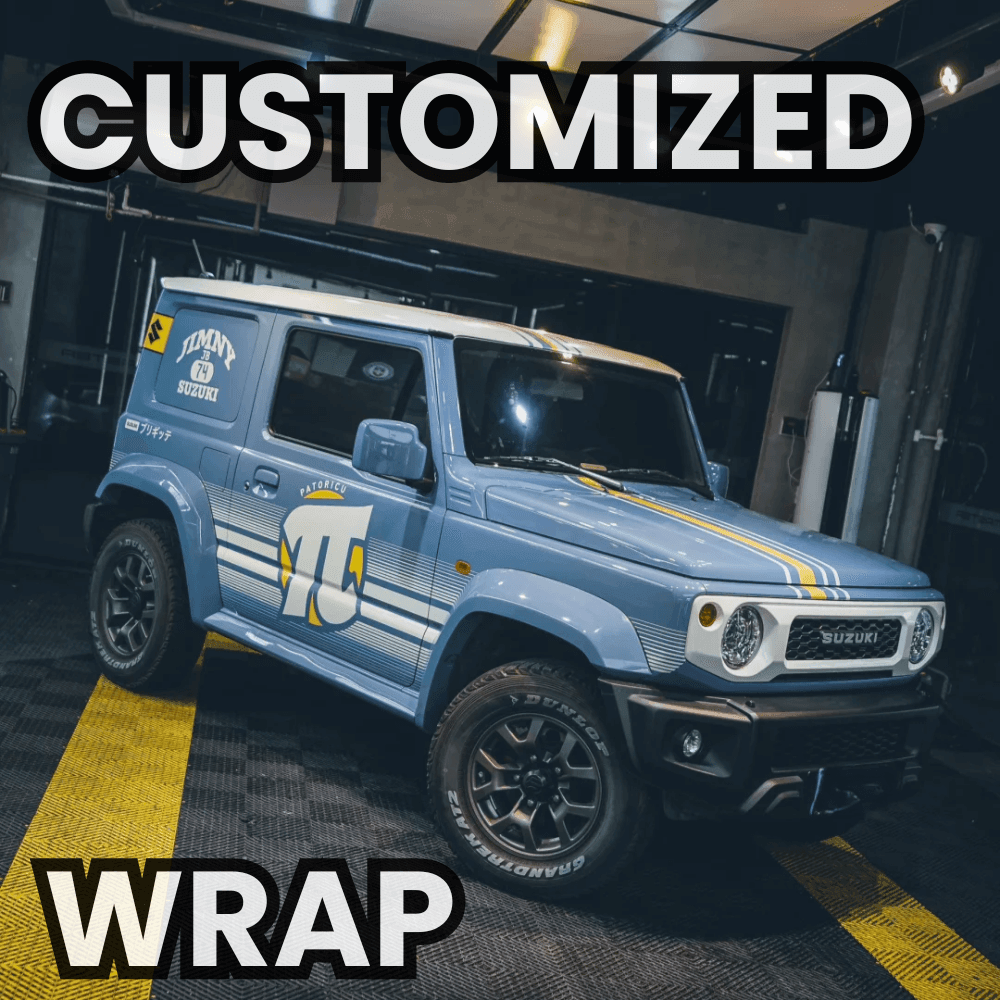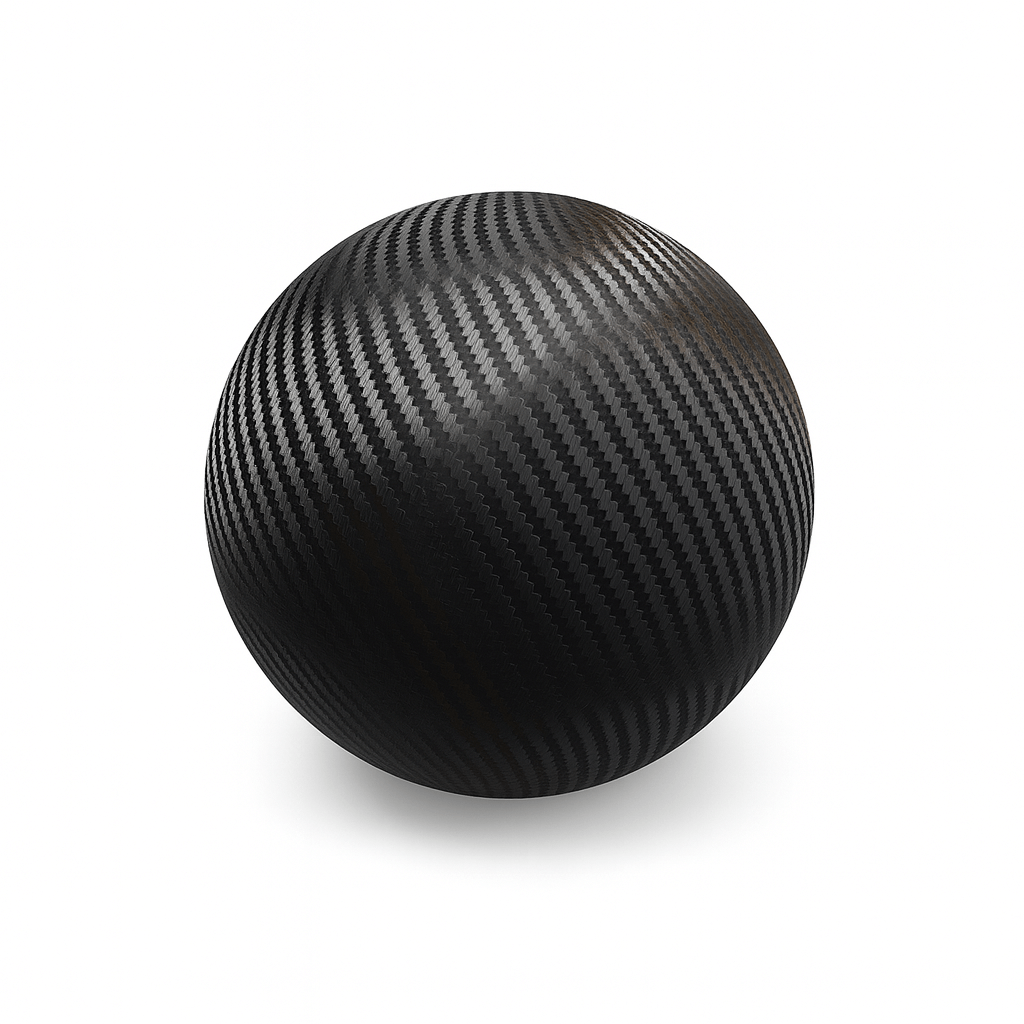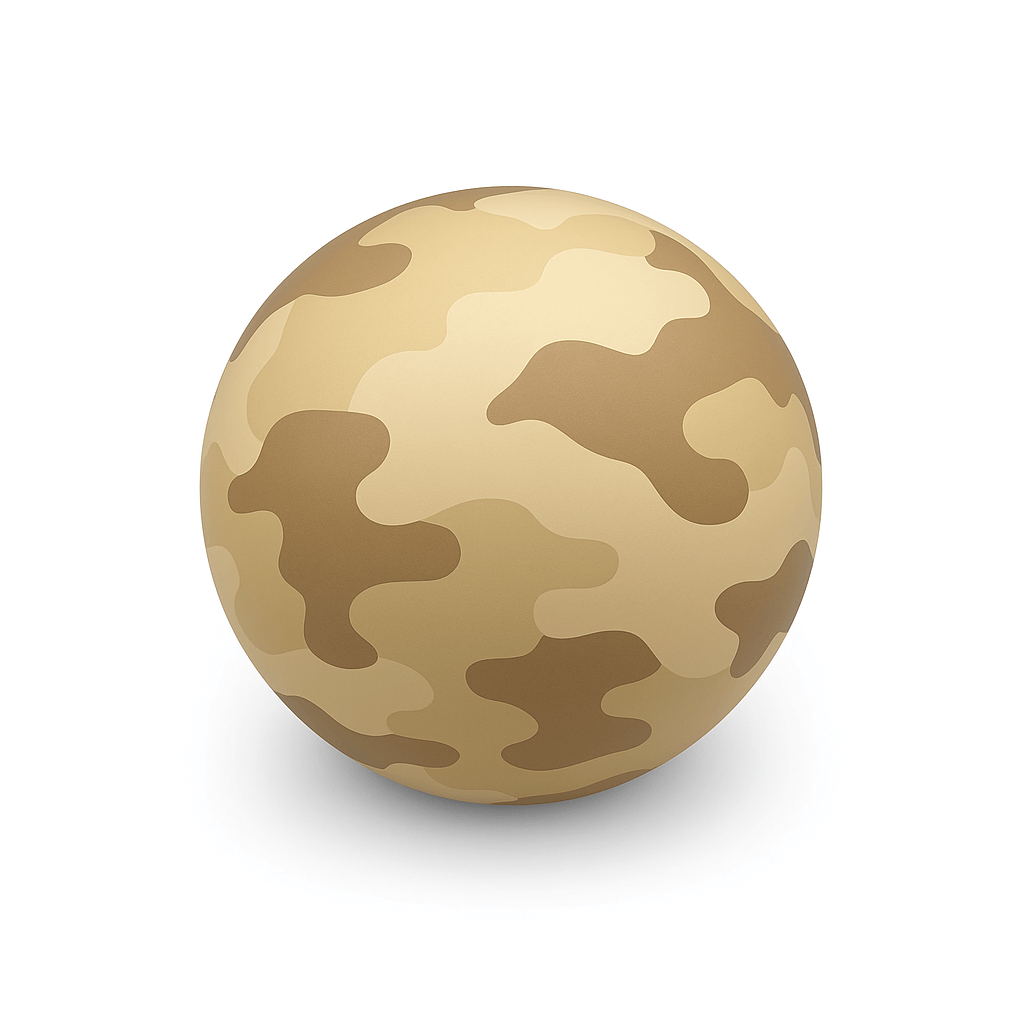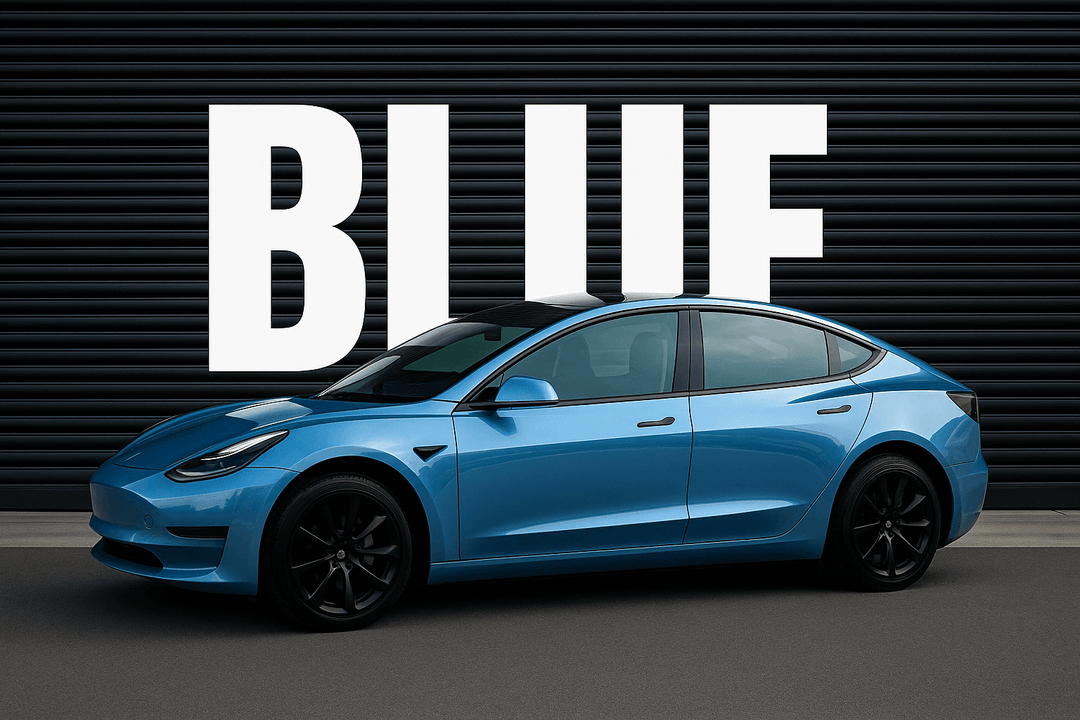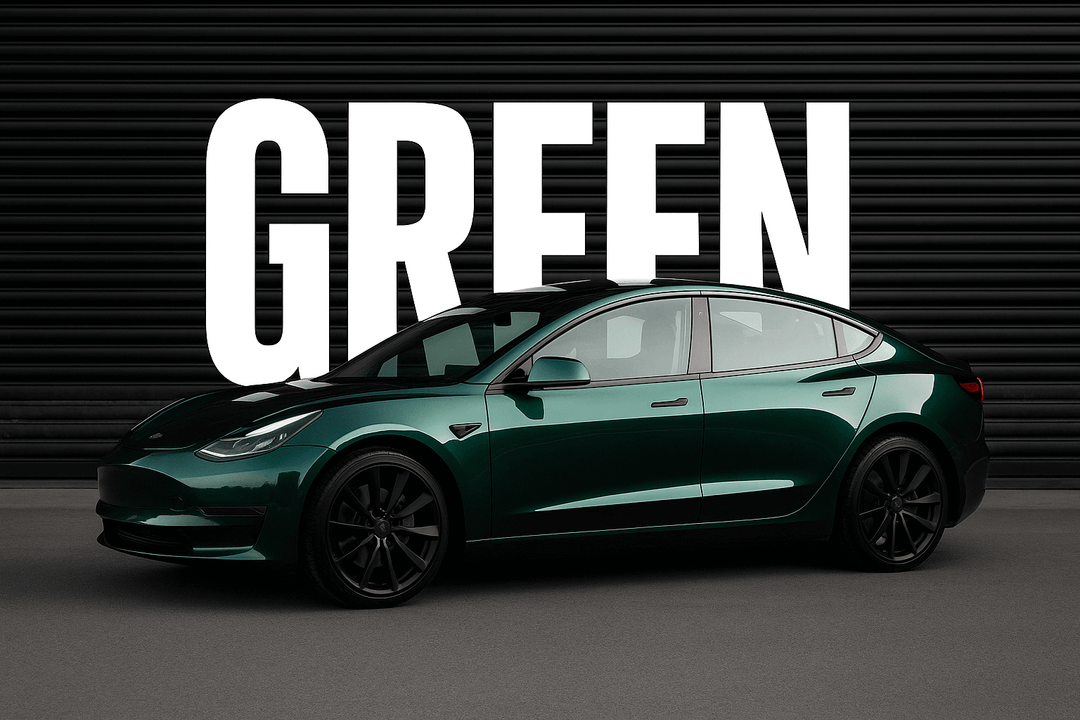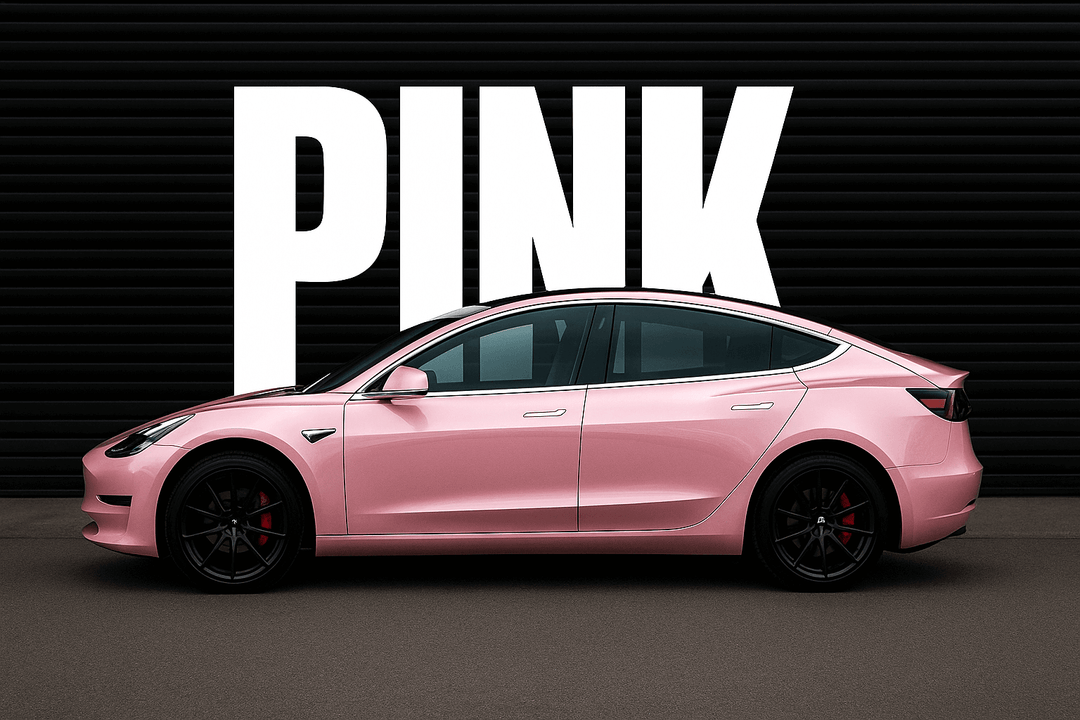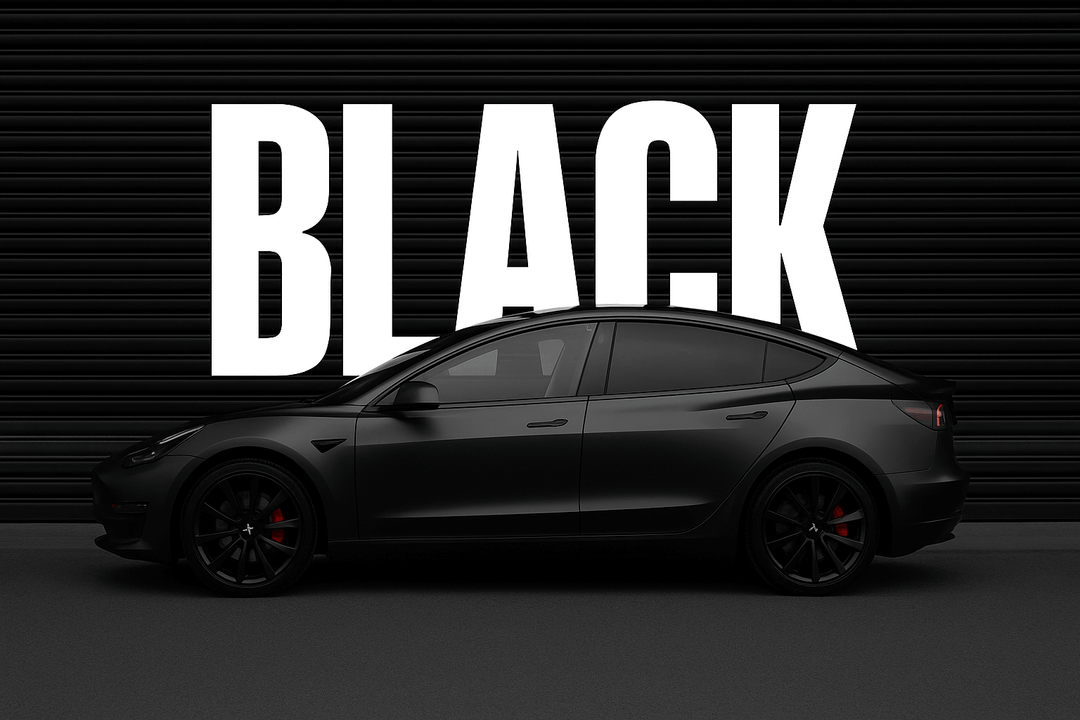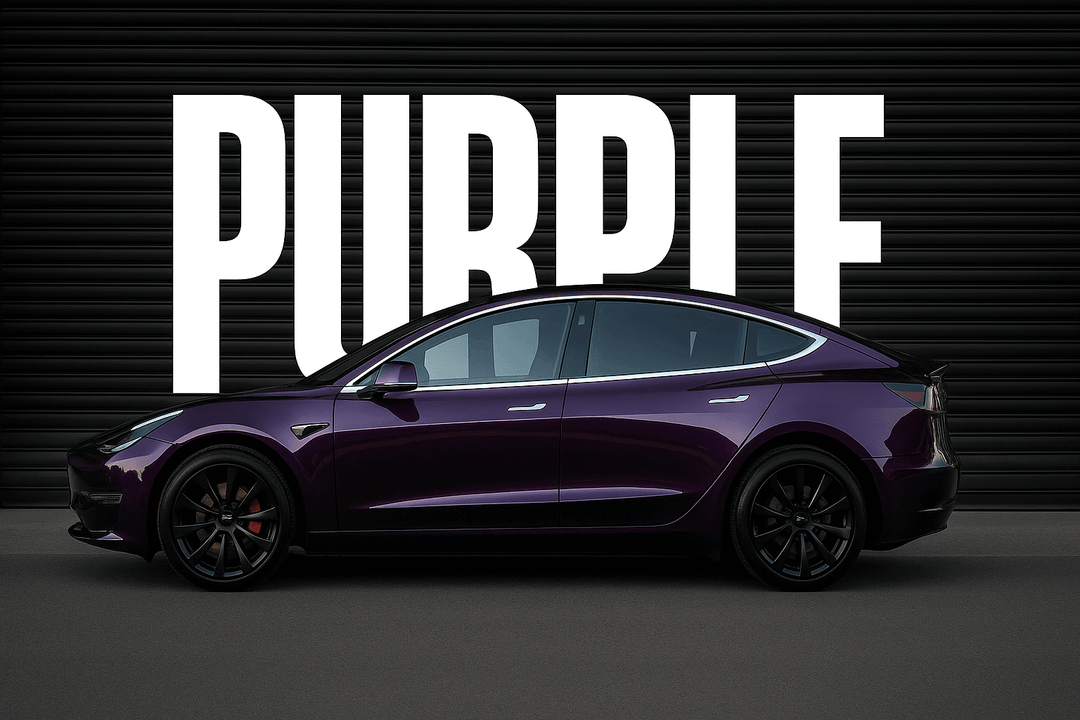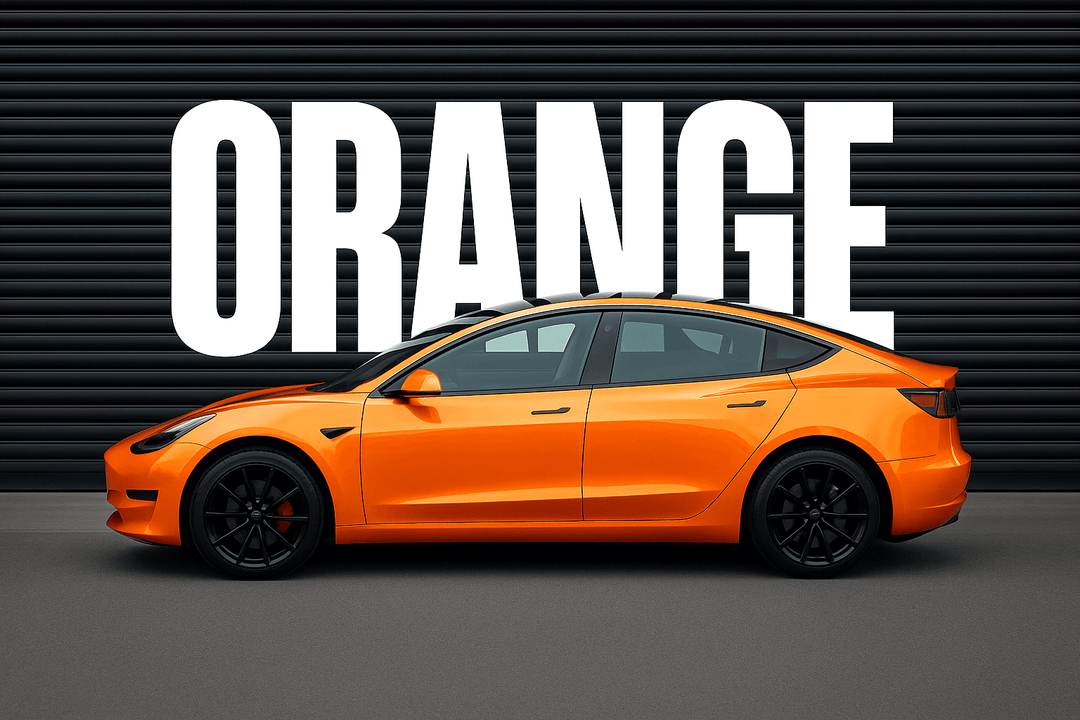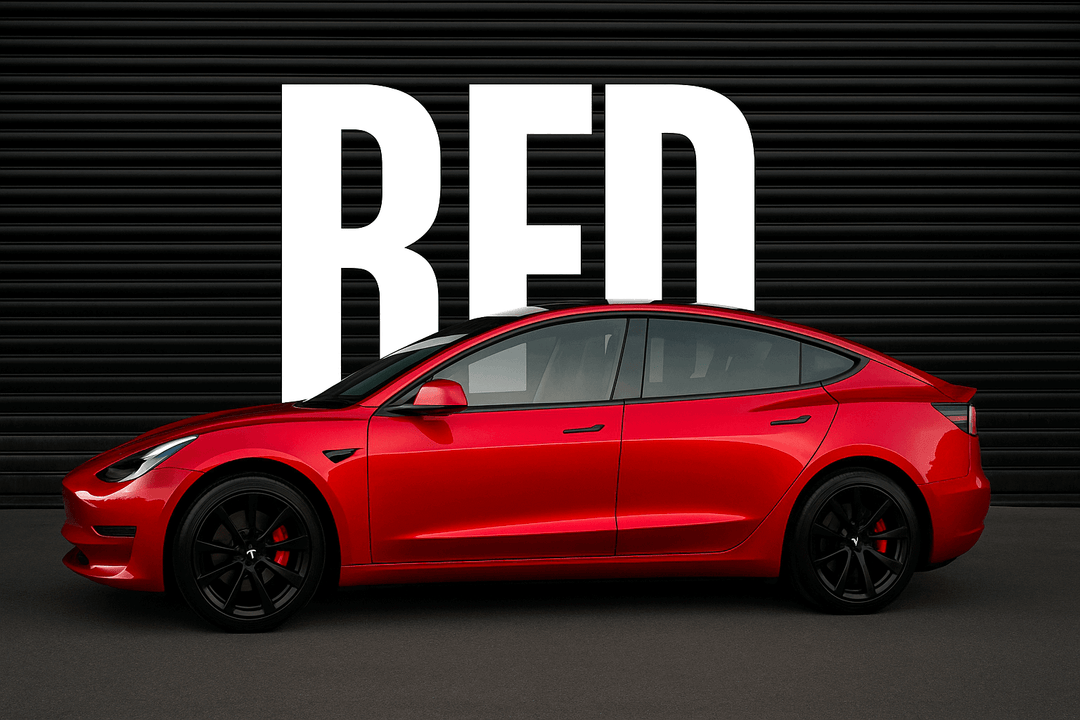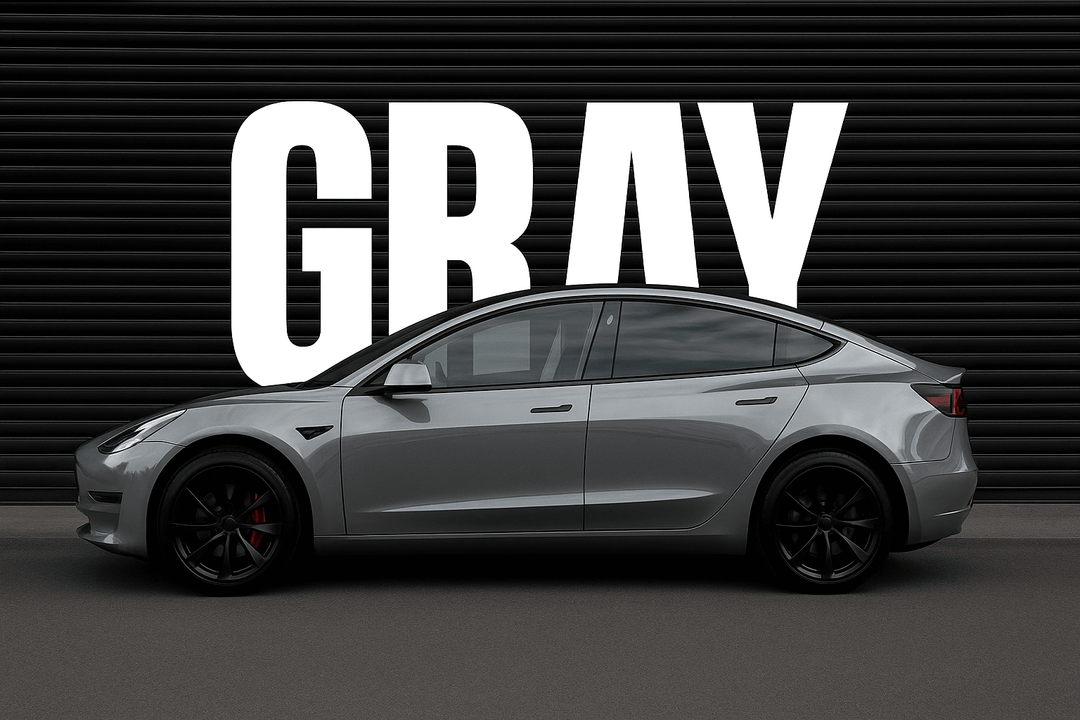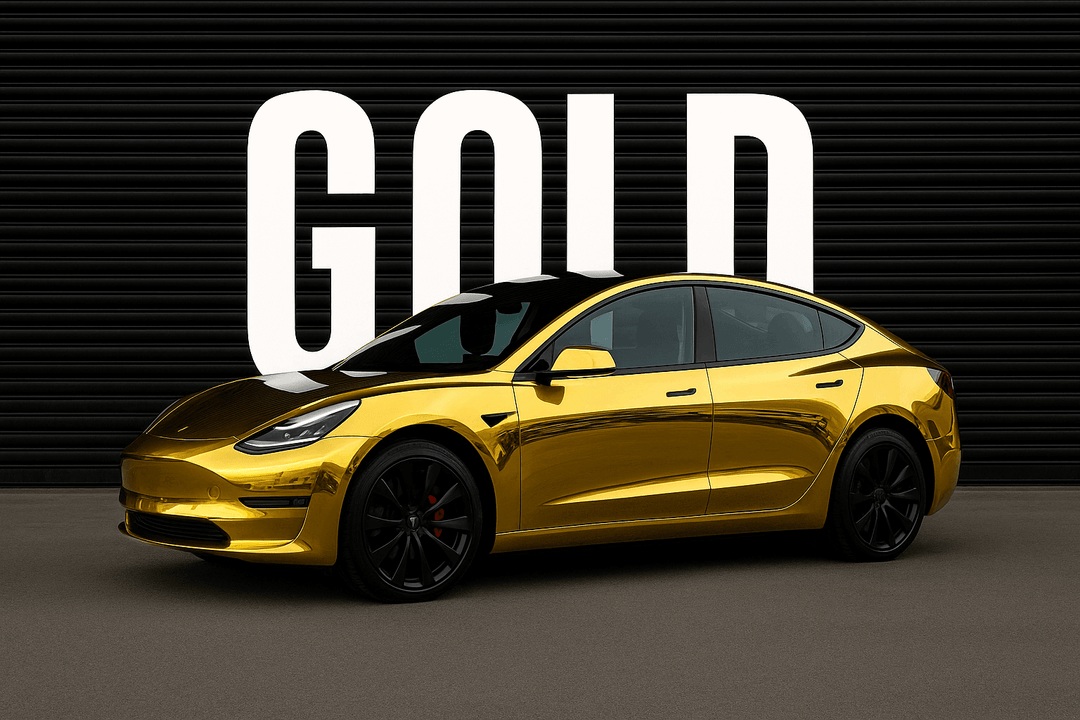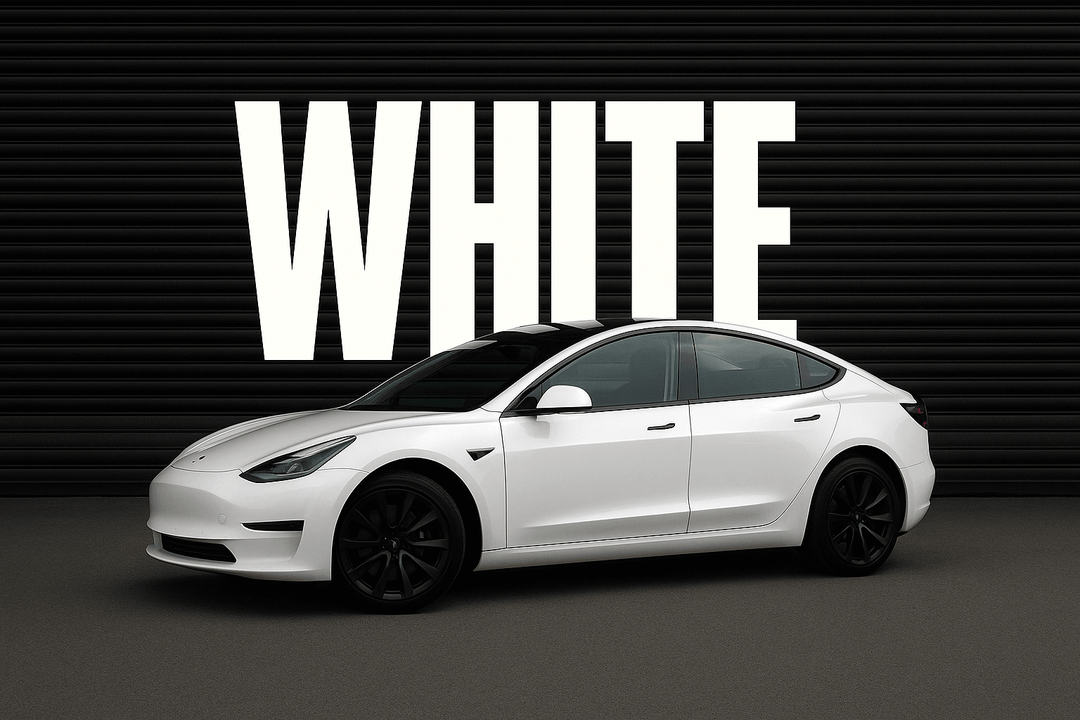How Much Does It Cost to Wrap a Car
How Much Does It Cost to Get a Car Wrapped?
A full car wrap typically costs between $2,500 and $7,000 with professional installation. Smaller cars usually fall on the lower end, while SUVs, trucks, and luxury vehicles cost more due to additional material and labor. Partial wraps often range from $500 to $2,500. Full clear PPF is commonly $4,000 to $8,000+, and color PPF is often $5,000 to $10,000+.
| Wrap Type | Typical Cost Range | Best For |
|---|---|---|
| Full Vinyl Wrap | $2,500 – $7,000 | Complete color change |
| Partial Vinyl Wrap | $500 – $2,500 | Roof, hood, accents |
| Full Clear PPF | $4,000 – $8,000+ | Rock chip protection |
| Color PPF | $5,000 – $10,000+ | Color + protection |
| Commercial / Custom Printed Wrap | $3,000 – $9,000+ | Branding & graphics |
What Factors Affect Car Wrap Cost?
- Vehicle size, height, and bumper complexity
- Film type: standard vinyl, specialty finishes, clear PPF, or color PPF
- Coverage: full wrap, partial wrap, or specific panels
- Design complexity: two-tone splits, printed graphics, pattern alignment
- Prep and paint condition: contamination removal, correction, repairs
- Shop standards and local labor rates

Car wrapping has moved from niche customization to a mainstream way to change a vehicle’s look, protect paint, or add branding. A wrap can make a daily driver look brand new, help a business stand out, or preserve factory paint for resale. The part that confuses most people is pricing.
If you search online “how much is it to wrap a car”, you will see numbers that range from a few hundred dollars to over ten thousand. Both can be true. The final cost depends on film type, coverage, vehicle size, installer skill, and how clean your paint is before the film goes on.
This guide breaks down the real car wrap costs for vinyl and PPF, explains why prices vary, and shows you how professionals build quotes. You will also see practical examples, so you can estimate your own vehicle.
How Much Does It Cost to Wrap a Car?
A full vinyl wrap typically costs $2,500 to $7,000 with professional installation. Partial wraps usually cost $500 to $2,500 depending on which panels you wrap and the film you choose.
If you choose paint protection film instead of vinyl, you should expect higher pricing. A full body clear PPF install typically costs $4,000 to $8,000+. Color PPF often lands between $5,000 and $10,000+ because the film costs more and the install is more demanding.
Quick vehicle wrap cost overview
|
Wrap type |
Typical price range |
|
Full vehicle wrap |
$2,500 to $7,000 |
|
Partial vehicle wrap |
$500 to $2,500 |
|
Commercial printed wrap |
$3,000 to $9,000+ |
|
Full front PPF package |
$1,500 to $3,500 |
|
Full body clear PPF |
$4,000 to $8,000+ |
|
Full body color PPF |
$5,000 to $10,000+ |
These ranges assume quality film and professional labor. Very low quotes often skip prep steps or use lower grade film.
Average Car Wrap Cost by Vehicle Type
Your vehicle size and shape affect material usage and labor hours. A small coupe can take far less time than a full-size SUV with complex bumpers and tall quarter panels.
|
Vehicle type |
Average full vinyl wrap cost |
|
Compact cars |
$2,500 to $3,500 |
|
Sedans |
$3,000 to $4,500 |
|
Hatchbacks |
$2,400 to $4,000 |
|
SUVs |
$3,500 to $5,500 |
|
Pickup trucks |
$4,000 to $6,500 |
|
Vans |
$4,500 to $7,500 |
|
Luxury and exotic cars |
$5,000 to $8,000+ |
|
Motorcycles |
$800 to $1,500 |
Note these numbers as a starting point. Your final price will move based on coverage, film choice, and the condition of the paint.
Car Wrap Cost Ranges Explained
When you ask about vehicle wrap cost, you may want one of three things. They want a full color change, a partial style upgrade, or a business wrap. Each car wrap has its own price logic.
1) Full color change vinyl wrap
A full wrap covers the exterior painted surfaces and often includes mirrors, bumpers, and other exterior elements, which delivers the biggest visual change.
Typical range: $2,500 to $7,000
The low end usually applies to smaller cars with a standard gloss, satin, or matte film. The high end applies to large vehicles, complex body lines, specialty films, and shops with strong reputations.
2) Partial wraps and accents
Partial wraps deliver impact without the cost of a full color change. They also reduce install time and lower risk for first time wrap buyers.
Typical range: $500 to $2,500
Popular choices include a black roof, carbon fiber hood, trunk accent, mirror caps, stripes, or a two tone layout.
3) Commercial wraps and printed graphics
Printed wraps include the design work, print production, lamination, and more complex alignment during installation.
Typical range: $3,000 to $9,000+
Fleet vehicles, box trucks, and high coverage graphics land on the higher end.
Full Wrap vs Partial Wrap
What is a full car wrap?
A full wrap covers most exterior painted panels. Many installers include hood, roof, doors, fenders, quarter panels, trunk, and bumpers. Some owners also request door jambs, which increases labor and cost.
Typical full vinyl wrap cost: $2,500 to $7,000+
Typical full clear PPF cost: $4,000 to $8,000+
Full wraps cost more because installers spend more time on disassembly, prep, and edge finishing.
What is a partial wrap?
A partial wrap covers selected areas. It can look premium when designed well, especially with a contrasting roof, hood, or a clean two tone split.
Typical cost: $500 to $2,500
If you want a strong look without a full budget, partial wraps often provide the best value.
Cost by Coverage Area
Many people do not need a full wrap. The price for each panel will vary depending on its size and shape.
|
Area wrapped |
Typical vinyl price range |
|
Hood |
$250 to $600 |
|
Roof |
$300 to $700 |
|
Trunk |
$200 to $500 |
|
Front bumper |
$400 to $1,000 |
|
Rear bumper |
$350 to $900 |
|
Mirrors |
$100 to $250 |
|
Racing stripes |
$200 to $800 |
|
Door handles |
$50 to $150 per set |
These numbers vary by vehicle and film type. Bumpers cost more because they require high skill and often need rework if the film overstretches.

Vinyl Wrap vs PPF
People often compare vinyl wrap vs paint protection film because both are applied to the exterior. They serve different purposes and their pricing reflects that difference.
Vinyl wrap
Vinyl is an appearance product. It gives you color, texture, and finish choices that paint cannot match easily. It provides light protection against minor scuffs and UV exposure, but it does not protect well against rock chips.
Common lifespan: 3 to 5 years depending on climate and care.
Paint protection film
PPF is a protection product. It is thicker and often self healing. It resists rock chips, abrasions, bug acids, and environmental damage better than vinyl.
Common lifespan: 7 to 10 years with proper care.
Why PPF costs more
PPF film costs more per square foot and takes more time to install. Installers need more precision because the film is thicker, less forgiving, and often requires wet installation techniques in certain steps. Shops also spend more time wrapping edges and avoiding contamination.
How Much Does PPF Installation Cost?
Partial Vehicle Clear PPF Cost
Most daily drivers do not need full body PPF. They choose impact zones.
Front bumper only: A mid size sedan front bumper often costs $600 to $1,200. The range depends on bumper complexity, sensor cutouts, and how much edge wrapping the installer does.
Full hood: A full hood install often costs $800 to $1,500. A partial hood costs less, but many owners prefer full hood coverage for a cleaner line.
Full front package: A typical full front package includes the front bumper, full hood, full fenders, mirrors, and sometimes headlights. This package often costs $1,500 to $3,500.
Why is the range wide? A simple bumper on an older sedan installs faster than an aggressive bumper with vents, splitters, and parking sensors. Labor drives most of the cost.
Full Vehicle Clear PPF Cost
Full body clear PPF on a sedan: Many shops quote $4,000 to $6,500 for a sedan, depending on film brand, edge wrapping, and prep.
Full body clear PPF on an SUV: SUVs and trucks often land at $5,500 to $8,500+ due to surface area and taller panels.
Color PPF Cost
Color PPF combines color change and protection. Film cost is higher and installers often spend extra time aligning panels and finishing edges.
Color PPF on a mid-size sedan: A realistic range is $5,500 to $8,500.
Color PPF on a full-size SUV or truck: A realistic range is $7,000 to $10,000+.
Vinyl Film Type and Price Impact
Not all vinyl costs the same. Film type affects material cost and installation difficulty.
Standard colors
Gloss, satin, and matte solid colors are usually the most affordable. Many shops base their entry pricing on these films.
Price impact: standard.
Metallic and pearl
Metallic films add depth and often cost more per roll. They also show surface imperfections more easily, which can increase prep time.
Price impact: moderate increase.
Color shift and chameleon
These films cost more and require careful panel orientation to avoid mismatched color flop. That increases planning time.
Price impact: moderate to high increase.
Carbon fiber and textured films
Textured vinyl can be harder to conform around tight corners. It may require more seams or inlays.
Price impact: moderate increase.
Chrome
Chrome costs the most and installs the hardest. It stretches less and can show distortion if overworked. Shops charge more because failure rates rise and install time increases.
Price impact: high increase.
What Is Included in Professional Car Wrap Installation?
People see a quote and assume most of it is the film. In reality, labor and prep drive the price.
Step 1: Consultation and quoting
A professional shop evaluates your goals, checks paint condition, and recommends film type. This step also includes measuring complexity. A clean estimate reflects real labor, not just surface area.
Step 2: Ordering and scheduling
Shops order film, plan booth time, and set aside labor hours. Specialty film sometimes extends lead time.
Step 3: Disassembly
To create clean edges, installers often remove or loosen parts such as mirrors, trim, emblems, lights, and sometimes bumpers. This step reduces visible seams and improves durability.
Step 4: Surface preparation
Prep includes deep cleaning, clay bar work, degreasing, and alcohol wipe down. If paint has oxidation, chips, or failing clear coat, the shop may recommend correction before wrapping.
Step 5: Installation
Installers apply film panel by panel using heat and controlled tension. They manage alignment, avoid overstretching, and heat set edges to reduce lifting later.
Step 6: Reassembly and inspection
Shops reinstall removed parts, check for lifting edges, and correct trapped air. Many shops schedule a post install check a few days later.
Where the money goes
|
Cost component |
What it covers |
Typical share |
|
Film |
Vinyl or PPF material |
25 to 35 percent |
|
Prep |
Cleaning, decontamination, minor correction |
10 to 20 percent |
|
Disassembly and reassembly |
Removing trim, lights, bumpers |
15 to 25 percent |
|
Installation labor |
Skilled application time |
30 to 45 percent |
|
Finishing |
Edge sealing, heat setting, inspection |
5 to 10 percent |
This is why two shops can quote very different prices. One shop may include deep prep and disassembly. Another may skip steps to hit a lower number.
Factors That Influence Car Wrap Cost
Vehicle make and model
Some cars have simple panels. Others have sharp creases, deep bumpers, and complex trim. Complexity increases labor.
Surface area and height
More surface area increases film usage and install time. Taller vehicles also slow down work because installers move ladders and reposition film more often.
Coverage level
A full wrap costs more than a partial wrap. Door jambs, inner edges, and hidden surfaces increase labor sharply.
Vehicle condition
Wraps do not hide dents and chips. If paint is peeling or damaged, film adhesion suffers. Prep work can add cost, but it prevents failure later.
Design complexity
Printed graphics, pattern matching, and two tone splits add time. Shops price these as premium installs because alignment must be perfect.
Installer location and reputation
Labor rates vary by region. Highly rated shops charge more because they deliver consistent results and stand behind their work.
Premium Vinyl Cost
Material cost alone can range widely.
For a standard size vehicle, quality vinyl material often costs $500 to $2,000 depending on finish and how many rolls the vehicle requires. Specialty films can exceed that range.
Many installers effectively price vinyl installs based on a combination of film cost per square foot plus labor hours. You might see a shop explain pricing as a flat package, but the internal math usually starts here.
Custom Car Wrap Cost
Custom wraps include design and print steps.
A simple commercial design with logos and basic layout often starts around $3,000 for a full vehicle. Complex full coverage graphics, camo patterns, or photo realistic art can reach $6,000 to $10,000+.
Costs increase because:
-
Design takes time
-
Printing and lamination add production cost
-
Installers spend more time aligning panels so graphics line up correctly
DIY Wrapping Cost
DIY can lower the price, but it changes the risk profile.
DIY cost range
Many DIY projects cost $300 to $800 for film and tools if you pick a standard vinyl. Specialty films can push the budget higher.
Typical tools include squeegees, knives, heat gun, magnets, alcohol, and microfiber towels.
Most first time wrappers do fine on flat panels like a roof. They struggle on bumpers, mirrors, and deep recesses. When DIY fails, the hidden cost is wasted film. A single failed bumper can consume several extra feet of vinyl.
DIY makes sense for small projects and learning. For a full wrap, professional labor often saves money in the long run if you value a clean finish.
Where to Buy Vinyl Wrap Online to Save Money?
If you want to keep your car wrap costs under control, where you source your materials matters just as much as who installs them. Buying high-quality yet affordable vinyl wrap, paint protection film, or color PPF directly from a trusted supplier can significantly reduce your overall budget.
YesWrap offers a wide range of premium vinyl wraps, clear PPF, color PPF, and custom printed wraps at competitive prices. Whether you plan to install the film yourself or work with a local professional wrap shop, sourcing materials in advance allows you to avoid shop markups while still using reliable, installer-approved films. With fast, free global shipping, you can lower your total wrap cost without compromising on quality or finish.
Is It Cheaper to Wrap or Paint a Car?
In most cases, wrapping costs less than a high quality paint job.
-
Professional vinyl wrap: $2,500 to $7,000
-
Quality paint job: $5,000 to $10,000+
Paint becomes more expensive if you want a full color change with door jambs and engine bay coverage. Wraps also offer reversibility, which matters for resale.
How Long Does a Wrap Last?
Vinyl lifespan
Quality vinyl can last 3 to 5 years. Climate and maintenance matter. Strong sun, harsh winters, and frequent automatic washes shorten life.
PPF lifespan
PPF often lasts 7 to 10 years. Premium films self heal minor swirls and resist rock chips better.
A well maintained wrap can outlast a cheaper wrap by years, which is why quality film and good installation usually pay off.
Hidden Costs and Quote Checkpoints
If you want accurate pricing from a wrap shop, you should ask a few direct questions.
Ask what the quote includes
-
Does the quote include removal of old wrap or decals
-
Does it include disassembly and reassembly
-
Does it include paint correction if needed
-
Does it include post install inspection
Watch for common add ons
-
Old wrap removal can add $500 to $2,000
-
Paint correction can add $200 to $1,000+ depending on condition
-
Door jambs and inner edges can add significant labor
Common Mistakes That Increase Cost
People often drive up cost by making predictable mistakes.
-
Choosing the cheapest quote without asking what prep steps are included
-
Selecting chrome or complex films without budgeting for extra labor
-
Wrapping over failing paint, which causes lifting and rework
-
Underestimating time and film needs for DIY
-
Skipping aftercare, which shortens lifespan and reduces value
Frequently Asked Questions
How much does it cost to wrap a car on average?
Most full vinyl wraps cost $2,500 to $7,000 depending on vehicle size, film type, and labor rates.
How much does a full car wrap cost for an SUV?
Many SUVs fall between $3,500 and $5,500 for vinyl. Large SUVs can exceed that range with specialty films.
How much does PPF cost compared to vinyl?
Full body PPF usually costs $4,000 to $8,000+, while vinyl often costs $2,500 to $7,000. PPF costs more because it protects better and uses more expensive film.
How much does a full front PPF package cost?
A common full front package costs $1,500 to $3,500 depending on vehicle complexity and film quality.
Does wrapping a car damage paint?
A properly installed and removed wrap does not damage healthy paint. If paint is already failing, removal can lift weak clear coat.
Is wrapping worth it?
For many owners it is worth it because wraps provide style flexibility, paint protection, and reversibility. For businesses, wraps can also act as mobile advertising.
How much does it cost to wrap a car yourself?
DIY often costs $300 to $800 for film and tools using standard vinyl. Costs rise with specialty films and rework.
Final Thoughts
Car wrap cost depends on choices you control. Coverage level, film type, vehicle complexity, and installer quality shape the final number. A full vinyl wrap typically lands between $2,500 and $7,000, while full body PPF usually runs $4,000 to $8,000+. Color PPF can push higher due to film cost and labor demands.
If you want the best value, focus on clear goals, honest quotes, and quality installation. A properly installed wrap looks better, lasts longer, and saves you money over time.
Related Resource
How Much Does it Cost for a Car Roof Wrap
How Much Does It Cost to Wrap a Car Matte Black


